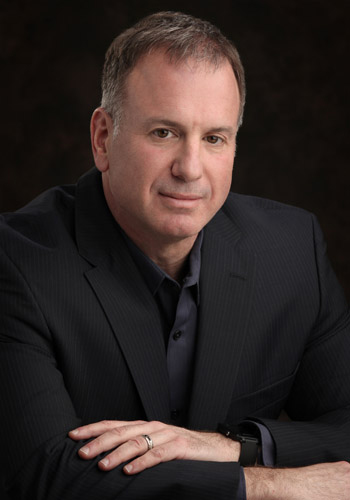Testosterone Replacement Therapy in New Jersey
We specialize in helping men feel like their normal selves again.
![shutterstock_152731139[compressed] Testosterone Replacement Therapy in New Jersey](https://www.trtspecialistnj.com/wp-content/uploads/elementor/thumbs/shutterstock_152731139compressed-opfd0qruu9d9p2f4kxvb0gkw64w7omtmbwt0qwtis4.jpg)
Do any of these symptoms sound familiar?
Any one of these symptoms could be a sign of Low Testosterone. The sooner you get it checked, the sooner you’ll start feeling better, stronger and more like yourself again.
Lack of Energy
All men get tired occasionally. However, prolonged and persistent fatigue is not normal at any age. Low energy can affect everything from your performance at work to your attitude at home, and it could be caused by factors out of your control. Let us help you regain control over your body and mind.
Declining Libido
When a man’s testosterone level falls below the normal range, a decrease in libido often follows. This doesn’t have to be permanent. We can help restore your vigor and drive, and help you feel like yourself again.
Weak Erections
You’re experiencing an intimate moment, but you’re unable to perform. You’re both disappointed and frustrated. It’s hard to talk about it because it’s embarrassing, but it doesn’t have to be. Our experts are here to listen and to help.
Depression
Your brain regulates your mood with hormone receptors. Low levels of testosterone received means that your brain has a harder time regulating your emotions. This affects your mood. Studies have shown that testosterone replacement therapy can have a positive effect on mood for men.
Decreased Muscle + Strength
You notice your strength is fading no matter what you do. Lifting heavy things is more difficult, and day to day tasks are more exhausting. It might not be your workout or you falling sick. This might be a sign of Low Testosterone.
Decreased Performance + Concentration
You find it difficult to concentrate and perform basic tasks at work. It’s hard to remember the name of your simple things and what’s next on your to-do list. Low T can affect cognitive function and have an impact on your brain.

You're in good company: 1 in 4 men over the age of 30 have low testosterone.
Our Process
Health Assessment
Consultation
Personalized Treatment Plan
Our Patients Love Us
Meet Dr. Rand
Dr. Johanan Rand, M.D. is very passionate about this field and thrives to be a role model for his patients through living what he preaches. He enjoys an active and healthy lifestyle, which includes healthy eating, taking high quality supplements, weight and cardio-training, yoga and martial arts.
He is on the cutting edge of the latest techniques in this field of medicine and Testosterone Replacement Therapy, but at the same time relies heavily on well-based research, thus implementing only the safest and most effective methods for his patients.
Experience & Expertise
- Board certified in anti-aging medicine, regenerative medicine and functional medicine
- Renowned expert in balancing hormones and is sought after by patients throughout the Tri-State area
- Certified by Millenium TBI network
- Consultant to Elite Health care out of China
- GAINSWave™ certified provider
- Leading expert in PRP, certified in all PRP procedures using third generation PRP (i.e., joint injections, face, hair, and sexual wellness)
- Consultant to retired sports professional organization
- Fellow Trained & Certified BR+NAD IV Therapy Physician


Frequently Asked Questions
Unfortunately, insurance companies do not pay for our healthy aging program plans.
We can arrange for the phlebotomist to come to you within 24 hours. Please drink lots of water and fast before your blood draw.
No, we are a comprehensive MEN’S health clinic specializing in erectile dysfunction, weight loss, cardio-metabolic health as well as functional and regenerative medicine
A system of medical treatment involving the administration of hormones to boost levels or act as a replacement.
- Week 1-2:
Increase in mental quickness sharpness and energy. An elimination of a mild to moderate depression. A generally improved enthusiasm for your daily life. - Week 2-3:
Better results from exercise and weight control efforts. More energy. An increase in sex drive. - Week 3-4:
Increased sex desire and spontaneous morning erections.
Testosterone is replaced by using either an injection or a transdermal topical cream.
Yes, there are numerous studies showing the safety of testosterone therapy. We recommend that you buy this book and see for yourself: Testosterone for Life: Recharge Your Vitality, Sex Drive, Muscle Mass, and Overall Health by Harvard Urologist Dr. Abraham Morgantaler
As with any medical treatment, there is always a chance of minor side effects. The potential for side effects is greatly minimized because our doctor only prescribes medically appropriate dosages. All of our programs include follow-up lab testing to ensure the correct dosage and minimize side effects further.
TRT Therapy in New Jersey
Testosterone is a vital hormone that makes a man a man – it helps build distinctive male traits in puberty and maintains a man’s physical and sexual health in adulthood. Most men experience a slow decrease in testosterone as they age, but if men younger than their mid-40s are experiencing a significant drop in sex drive and have problems becoming and staying erect, there could be other health issues at hand.
A variety of conditions can lead to a lower than normal testosterone score on a blood test, some of these being an injury to the testicles, hormonal disorders, Type 2 diabetes, HIV/AIDS, and chronic liver or kidney disease. Certain genetic conditions and medication can also lower a man’s testosterone score. A drop in testosterone scores can lead to lowered bone density, making bones fragile and likely to break.
Signs of low testosterone in men include excessive fatigue, caused by lower energy levels, difficulty falling and staying asleep, and sleep apnea. Physical changes such as hair loss, decreased muscle mass, increased body fat, and change in cholesterol metabolism are also possible. Some of the most apparent signs are a lowered desire for sex and changes in the function and size of male genitalia – including difficulty getting and maintaining erections, reduction in testicle size, and reduction in the amount of semen produced. Some men with low levels of testosterone may have hot flashes and difficulty with emotional regulation, often a result of irritability, fatigue, and lack of focus.
These signs can lead to bigger problems in the future, such as depression as a side effect of the emotional regulation issues. Men experiencing sleep apnea are at increased risk of getting a stroke. A drop in sex drive and difficulty getting and maintaining erections can have a psychological effect and result in lowered self-esteem as well as affect a man’s fertility.
Testosterone replacement therapy in New Jersey, otherwise known as TRT or Low T Therapy, can be delivered orally, through the skin or through direct implant or injection. A healthy lifestyle with exercise combined with a diet rich in nutrients can also help increase testosterone levels.
Regardless of how one feels, it’s always a good idea to have testosterone levels checked regularly to run as optimally as possible. The signs of low testosterone can be subtle, especially at first, but if left untreated can have a significant negative impact on one’s life. If you’d like to schedule a consultation with the leading TRT Specialist in New Jersey, please consider Dr. Johanan Rand of Healthy Aging Medical Centers.
He is on the cutting edge of the latest techniques in this field of medicine and hormone replacement, but at the same time relies heavily on well-based research, thus implementing only the safest and most effective methods for his patients.




